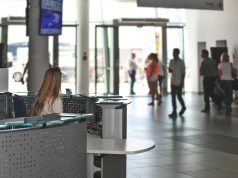
In recent years, a wave of innovation has swept through the real estate industry, dramatically changing how we view, buy, and interact with properties. Cities around the world are embracing new technologies and innovative practices to transform their real estate landscapes, making them more efficient, sustainable, and accessible. In this article, we explore ten cities leading the way in real estate innovation, including a unique case that ties the world of real estate with the burgeoning field of cryptocurrencies. In addition, if you are looking for a website that helps people learn about investments by connecting them with investment education companies that can help them receive the right information, you may visit Immediate ePrex Ai Platform.
Singapore: Smart Nation Vision
Singapore’s Smart Nation vision is a prime example of how a city is leveraging technology to transform its real estate landscape. Through the integration of smart technologies, IoT devices, and data analytics, Singapore is optimizing energy usage, improving infrastructure, and enhancing the livability of its urban spaces. The government has also implemented a digital twin of the city to plan and manage urban development more effectively.
Amsterdam: Circular Economy
Amsterdam is pioneering the circular economy movement, where the focus is on sustainability and the efficient use of resources. The city’s real estate sector is no exception, with numerous initiatives aimed at creating energy-neutral buildings and reusing materials. This approach not only reduces waste and energy consumption but also paves the way for innovative property solutions that prioritize environmental consciousness.
Dubai: Blockchain in Real Estate
Dubai has been at the forefront of integrating blockchain technology into its real estate sector. The city’s government has launched a blockchain-based registry system, aiming to enhance transparency, reduce fraud, and streamline property transactions. This move positions Dubai as a global leader in adopting blockchain for practical and transformative purposes in real estate.
San Francisco: Proptech Hub
San Francisco’s status as a global tech hub extends to its real estate sector, with numerous startups and established companies exploring innovative property solutions. From virtual reality property tours to AI-powered pricing algorithms, San Francisco’s real estate landscape is rapidly evolving to become more user-friendly and efficient.
Berlin: Affordable Housing Innovations
Berlin is tackling its affordable housing crisis through innovative policies and architectural solutions. The city is promoting co-living spaces, modular housing, and other alternative living arrangements to provide affordable and flexible housing options for its residents.
Tokyo: Disaster-Resilient Infrastructure
In response to its vulnerability to natural disasters, Tokyo is investing heavily in disaster-resilient infrastructure. The city’s real estate sector is no exception, with innovations such as earthquake-resistant buildings and flood-proof properties becoming increasingly common. These measures not only protect residents but also ensure the long-term sustainability of Tokyo’s real estate landscape.
Helsinki: Smart City Solutions
Helsinki is transforming its real estate sector through a comprehensive smart city strategy, incorporating IoT devices, open data, and digital services to enhance urban living. The city is focusing on creating intelligent buildings that optimize energy usage, improve indoor air quality, and enhance the overall living experience for residents.
Toronto: Sidewalk Labs
Toronto’s partnership with Sidewalk Labs, a subsidiary of Alphabet Inc., aims to create a futuristic neighborhood from the ground up. The project, known as Quayside, focuses on leveraging technology to create a more sustainable, affordable, and efficient urban environment. This initiative represents a bold step forward in reimagining the potential of real estate in urban development.
Melbourne: Green Building Movement
Melbourne is at the forefront of the green building movement, with a strong focus on sustainable construction and eco-friendly practices. The city’s real estate sector is increasingly prioritizing energy efficiency, renewable energy sources, and sustainable materials, contributing to a cleaner and greener urban landscape.
New York City: Crypto and Real Estate
New York City’s real estate sector is uniquely positioning itself at the intersection of property and cryptocurrencies. Innovative startups and forward-thinking investors are exploring ways to integrate blockchain and digital currencies into real estate transactions, providing more transparency, security, and efficiency. This includes tokenizing property assets, enabling fractional ownership, and facilitating cross-border transactions.
Conclusion
The real estate landscape is undergoing a transformation, driven by innovation, sustainability, and the integration of new technologies. Cities around the world are embracing these changes, paving the way for a future where real estate is more accessible, efficient, and aligned with the needs of urban dwellers. From Singapore’s smart city vision to New York City’s pioneering work in crypto-real estate, these cities exemplify the potential of innovation to revolutionize the real estate sector. As we look ahead, the continued convergence of real estate and technology promises to bring even more exciting developments, shaping the future of urban living for generations to come.













